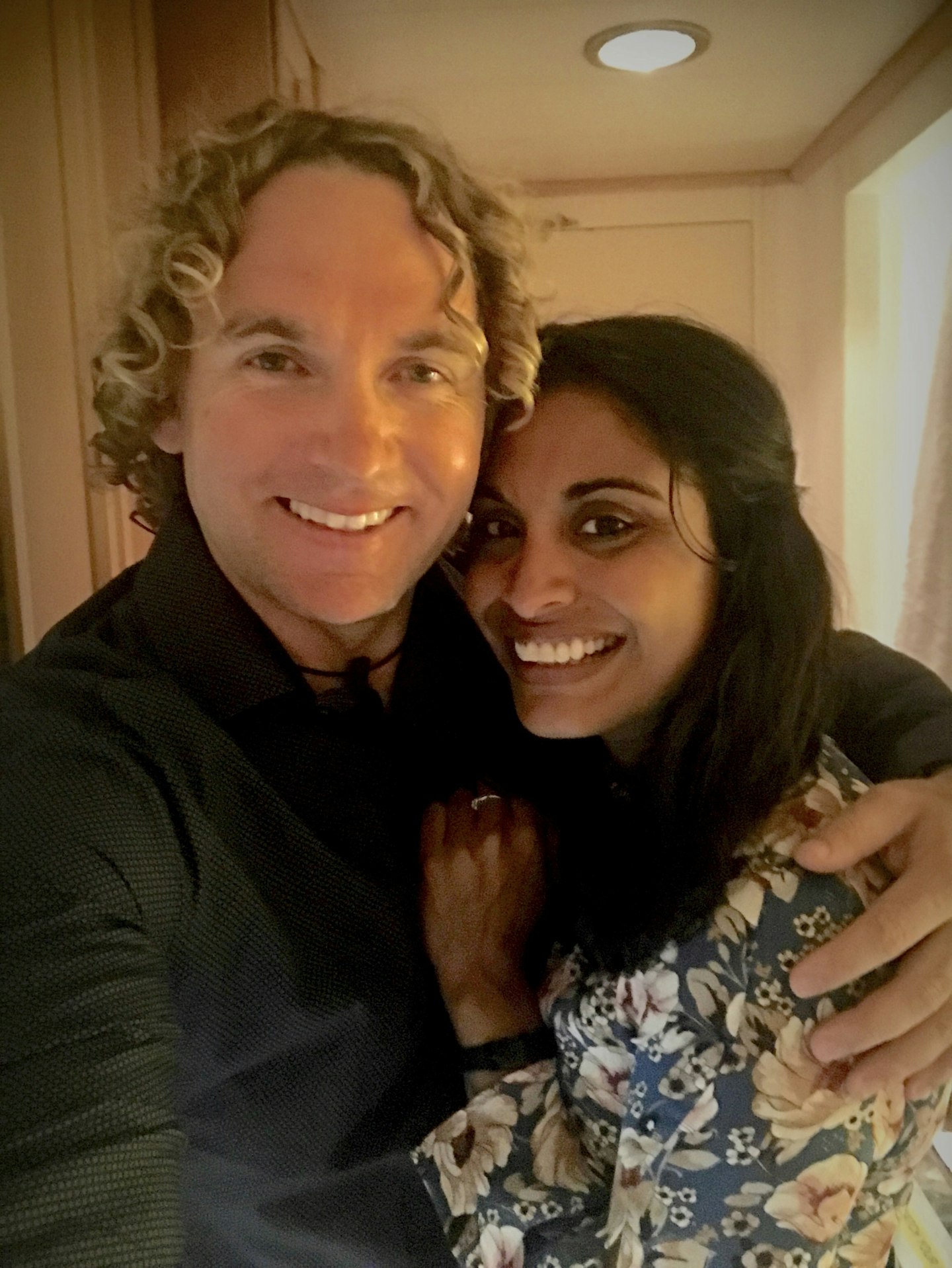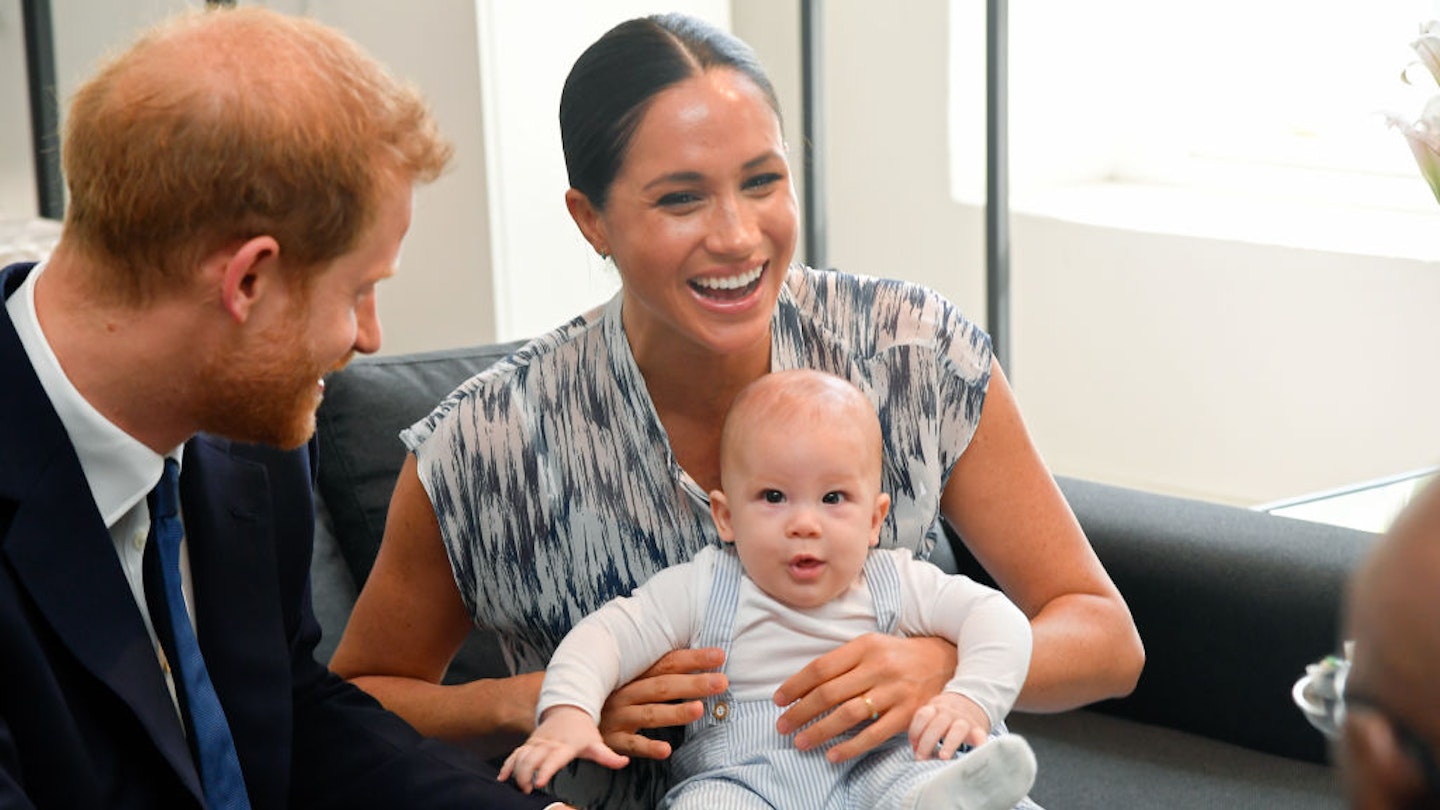For much of the Royal Family versus Harry and Meghan saga, I have wished for the young royals to be left to get on with their lives. But today, as I woke up to the headlines we all knew were coming, I wasn’t prepared for just how much Meghan’s interview with TV legend Oprah Winfrey would affect me. As a dark-skinned woman in a mixed-race relationship, living part-time within a deep-rooted culture of racism, I find her revelations sad and shocking – but painfully familiar.
In the interview broadcast in America last night, Meghan explained how members of the Royal Household had expressed ‘concerns and conversations’ about her son and ‘how dark his skin might be when he’s born’. Her experiences left her feeling that she ‘didn’t want to be alive anymore’. The hurt in her eyes - from simply knowing those conversations took place - is unmistakeable. How could a baby be thought of in such a way?
The Duchess and I share one major similarity in our lives. We both fell in love with somebody who comes from a background we perhaps wouldn’t choose for ourselves. My fiancé, Brad, comes from a rural region of South Australia where diversity barely exists and, in the most part, is not welcome. I was born and raised in the UK, and my skin tone represents my wonderful Sri Lankan heritage. We met while working abroad and knew very quickly we wanted to be together. Since then, we have had to find a way to share our lives between London and South Australia so we can spend precious time with our parents and friends.
No amount of time has healed the comments about what our future children may look like. So much so that this has been a major factor in why we've decided not to have children of our own.
It has taken years for me to come to terms with the constant stares and double takes in South Australia. Yet, no amount of time has healed the comments about who I am as a person and the pointed questions of what our future children may look like. So much so that this has been a major factor in why Brad and I have decided not to have children of our own.
I was at a regional community event when I realised how much my skin tone affected how people viewed me as a human being. When introduced to a local man by a mutual friend, he pointed his head towards me, and assuming I couldn’t understand him, asked our friend, ‘I don’t think it’s aboriginal, is it?’ I made a mental note then that I would never introduce my child to a world that saw them as an it.
On another day, a family friend chortled as he asked, ‘Have you guys realised you’re going to have curly black kids?’ – as though we might want to reconsider our relationship now that this ‘horrendous’ observation had been pointed out. At the time, I was new and shell-shocked and couldn’t quite believe what I was hearing. I put it down to a misplaced sense of humour. But as time went on, I realised that comment wasn’t a one-off – it was how many people thought.

Microaggressions like that are so fleeting in nature but still feel as through a knife has been launched into your gut. It shows you, and any innocent babies you may have, are nothing but a colour to some people.
For every couple, like Meghan and Harry – who are fighting for their right to have a family despite the prejudice - there is another couple, like us, who decide the pain is too much and that not having children is a sacrifice they will make. As someone who has endured the dehumanising hurt that comes with engrained, entrenched, everyday racism, my heart aches for the Duke and Duchess and the journey they are now on.
In the past my eyes have flinched and welled up like Meghan’s did in her interview; my chest has heaved with sadness and exhaustion in the same way hers does. I sincerely hope as a society we can find it in us to be better - to stop criticising and tearing apart their every move. Life is hard enough as it is.
READ MORE: The Biggest Revelations During Harry And Meghan's Oprah Interview
